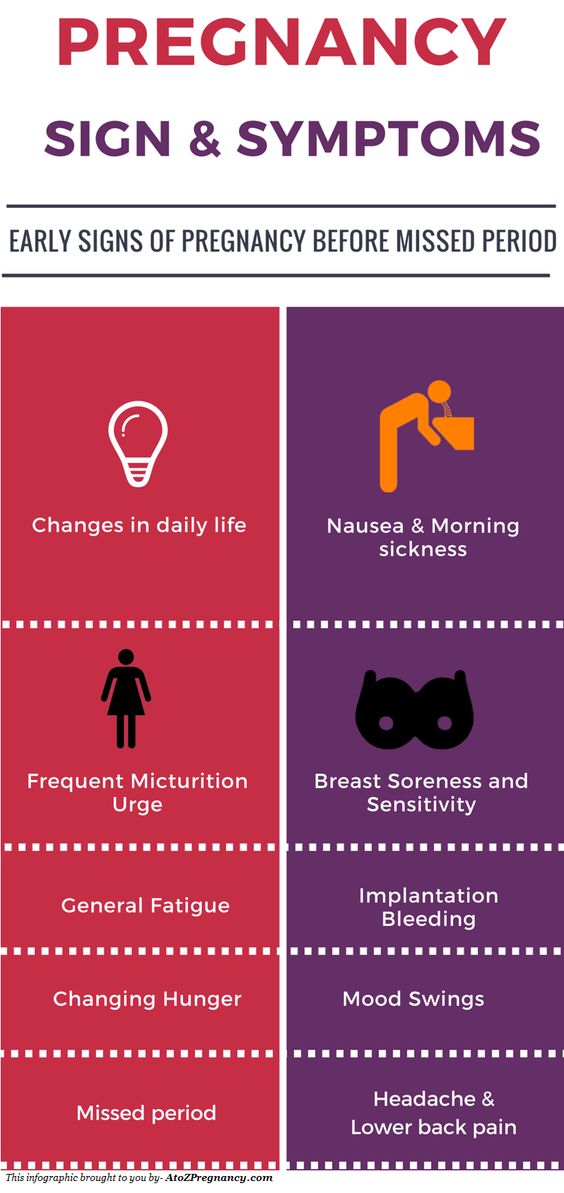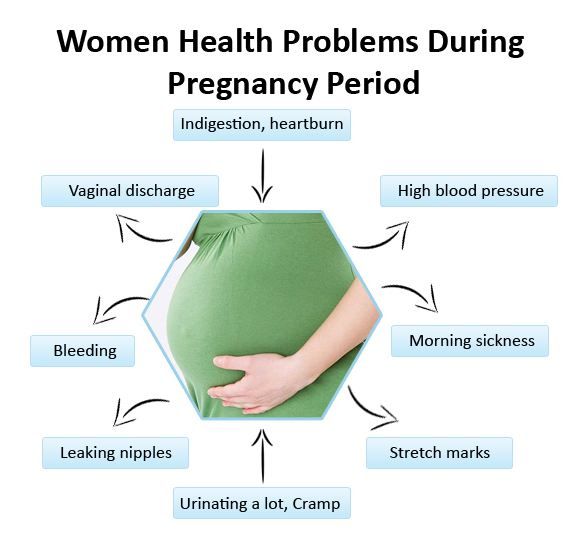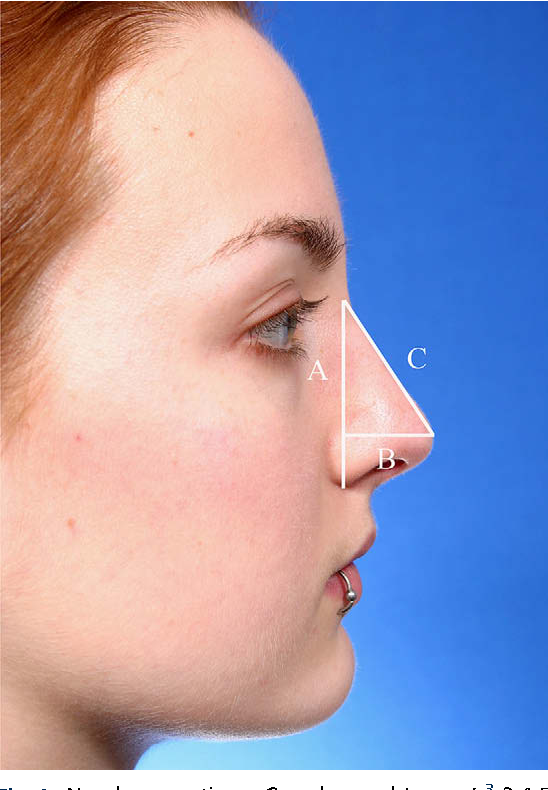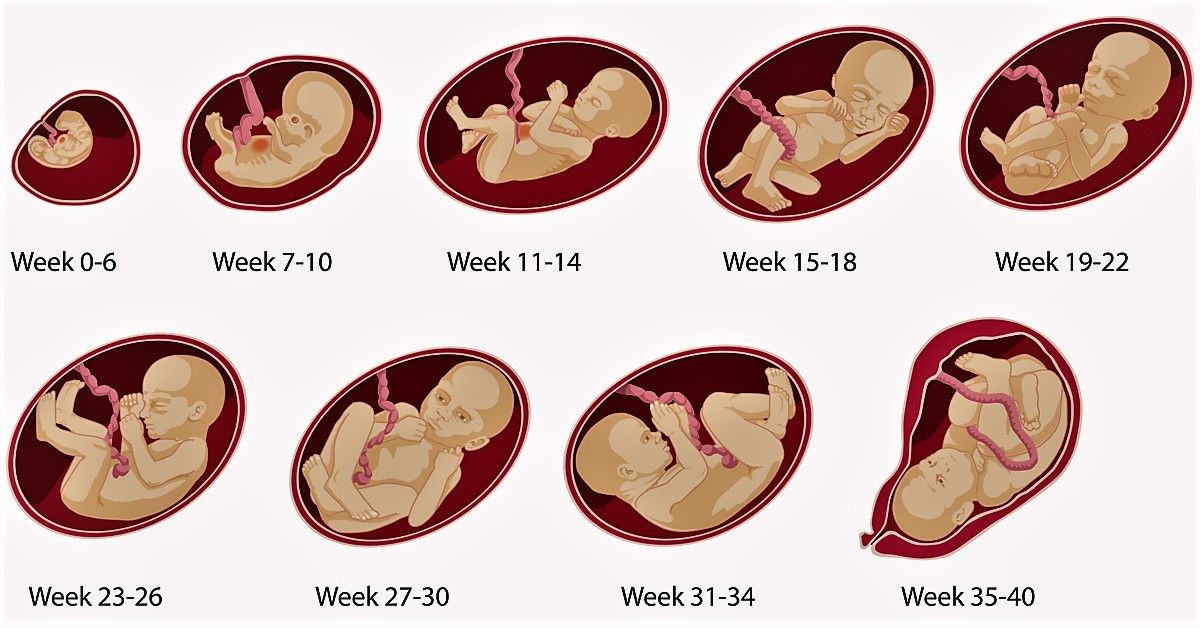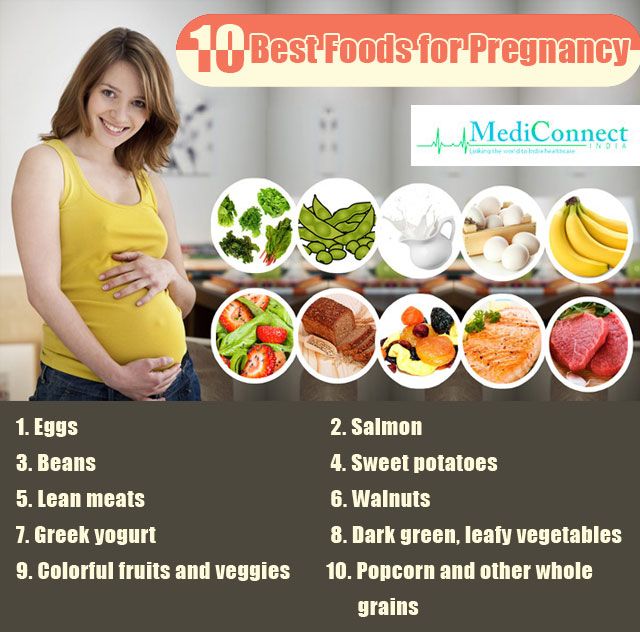Period symptoms while pregnant
How to tell the difference
Premenstrual syndrome (PMS) causes several symptoms that resemble early pregnancy. However, it is possible to differentiate between PMS and pregnancy symptoms.
Symptoms of both premenstrual syndrome (PMS) and pregnancy can vary from person to person, but they often include tenderness in the breasts, cramping, and changes in mood.
In this article, we compare the symptoms of PMS with those of early pregnancy and explore the differences between the two.
Symptoms common to both PMS and pregnancy include:
Changes in mood
Share on PinterestStomach cramps can be a symptom of both PMS and early pregnancy.Feeling irritable, anxious, or sad, or having crying spells, are common in both early pregnancy and the days leading up to a period.
These symptoms of PMS typically disappear once menstruation begins. However, if mood changes persist and a person misses their period, this may suggest pregnancy.
Persistent feelings of sadness can indicate depression. See a doctor if low moods last for 2 weeks or more.
About 10 percent of pregnant women worldwide experience a mental health condition, depression being the most common.
Constipation
Hormonal changes are a common cause of constipation in women. The fluctuations can slow down bowel movements.
Research suggests that constipation affects up to 38 percent of women during pregnancy, but it also affects many women just before their periods.
Pregnant women are most likely to have constipation in the first two trimesters, while women with PMS-related bowel problems typically experience relief after their periods begin.
Breast pain and tenderness
Breast changes are a common symptom of both PMS and early pregnancy. The changes can include:
- pain
- tenderness
- swelling
- heaviness
- sensitivity
- bumpy breast tissue
The severity of these symptoms varies among individuals.
However, in people with PMS, breast-related symptoms are usually most significant just before a menstrual period, and they typically get better during the period or just after it ends.
In early pregnancy, the breasts may feel particularly tender to the touch, and they often get heavier. The area around the nipple may sting or feel sore. Some women also develop more noticeable blue veins near the surface of the breasts.
Breast symptoms during pregnancy begin 1 or 2 weeks after conception and may persist until childbirth.
Fatigue
The hormone progesterone contributes to tiredness and fatigue before a period. Fatigue typically goes away once the period begins.
For women with heavy periods, excessive tiredness can last throughout the period. It may also be a sign of iron-deficiency anemia.
Fatigue is also a common symptom of early pregnancy. It often persists throughout the first trimester, and some women feel tired for the full 9 months. Difficulty sleeping and frequent nighttime urination can make pregnancy fatigue worse.
Bleeding or spotting
Light spotting or bleeding can occur in early pregnancy. This is called implantation bleeding, and it typically occurs 10–14 days after fertilization.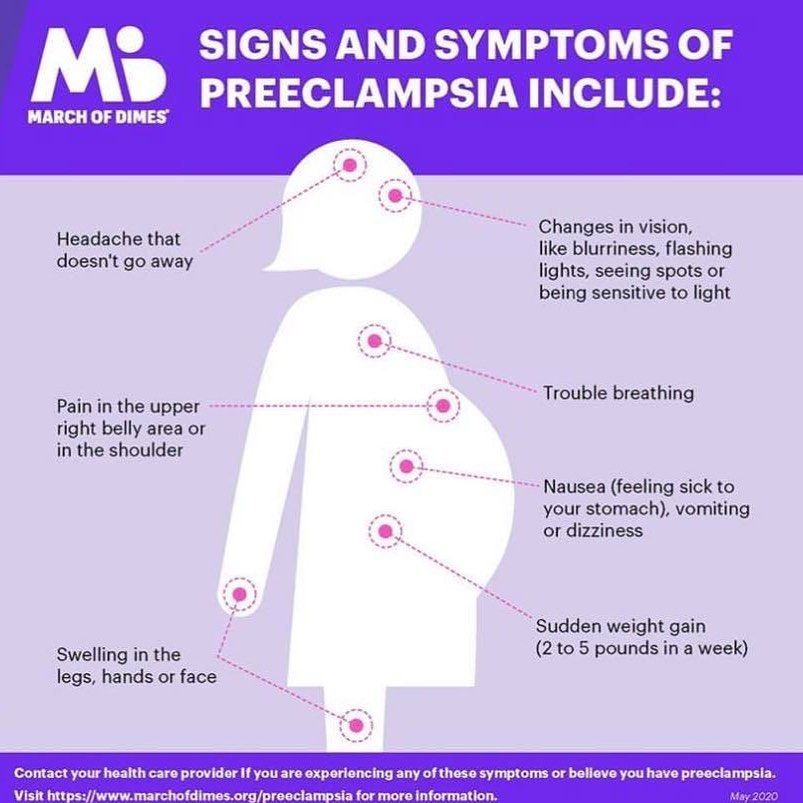
Many women do not experience implantation bleeding. Others may not notice it. It is much lighter than menstruation.
PMS does not typically cause spotting, although a period can be very light on the first day. Usually, menstrual bleeding lasts for 4 or 5 days, and it causes more significant blood loss than the spotting of implantation.
Cramping
Cramping is common in both PMS and early pregnancy. Early pregnancy cramps are similar to menstrual cramps, but they can occur lower down in the stomach.
These cramps may persist for weeks or months during pregnancy, as the embryo implants and the uterus stretches.
Headaches and back pain
Hormonal changes can cause both headaches and back pain in early pregnancy and before the menstrual period.
Changes in appetite
Share on PinterestChanges in hormones may cause women to crave sweet foods before their period.Increased appetite and food cravings are common symptoms of pregnancy, but they can also occur with PMS.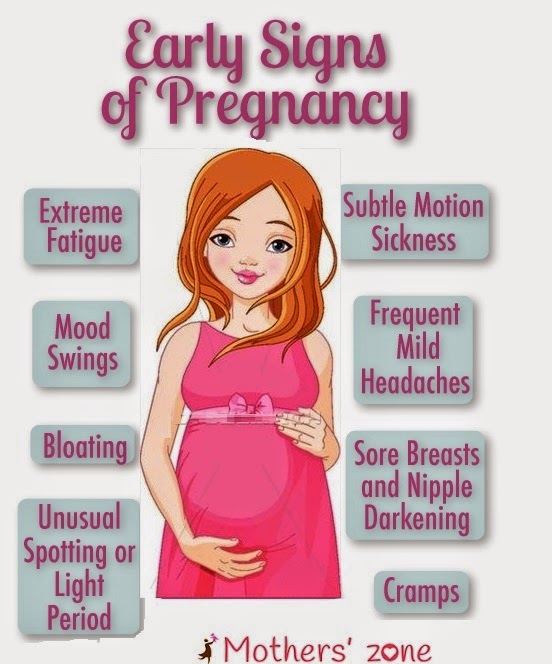
Many people with PMS experience increased appetite and cravings for sweet or fatty foods, or carbohydrate-rich meals. Changes in the hormones estrogen and progesterone likely influence cravings just before a period.
Research indicates that 50–90 percent of pregnant women in the United States have cravings.
Many crave specific foods and have aversions to others, finding their sight or smell deeply unpleasant. Food aversions are much less common in people with PMS.
Some pregnant women crave non-food items, such as ice or dirt. The medical term for this phenomenon is pica. Anyone with pica should speak to a doctor.
Some symptoms are more likely to indicate early pregnancy than an impending period. However, a person can only be sure by taking a home pregnancy test or visiting a doctor.
Symptoms that are likelier to signal pregnancy include:
A missed period
Missing a period is one of the most obvious signs of pregnancy. If a period is 1 week late and pregnancy is a possibility, take a pregnancy test.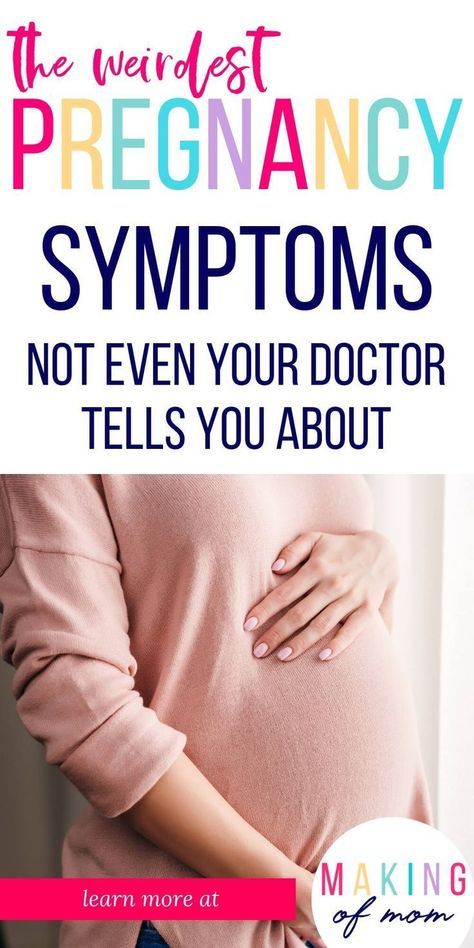
Many tests are highly sensitive and can detect pregnancy hormones several days before a missed period.
However, there can be many other reasons for a missed or late period, such as:
- stress
- low body weight
- polycystic ovary syndrome
- going on or off birth control, or switching methods
- having a medical condition, such as thyroid disease or diabetes
- menopause
Nausea
Share on PinterestNausea and vomiting are common in early pregnancy.
While mild digestive discomfort can occur just before a menstrual period, nausea and vomiting are not typical PMS symptoms.
They are, however, common symptoms of early pregnancy. Nausea affects up to 80 percent of pregnant women. Nausea and vomiting usually start before the 9th week of pregnancy.
Typically, these symptoms subside by the second trimester, but some women experience nausea throughout pregnancy.
Nipple changes
Although breast changes can occur during both PMS and pregnancy, changes to the nipples rarely happen before a period.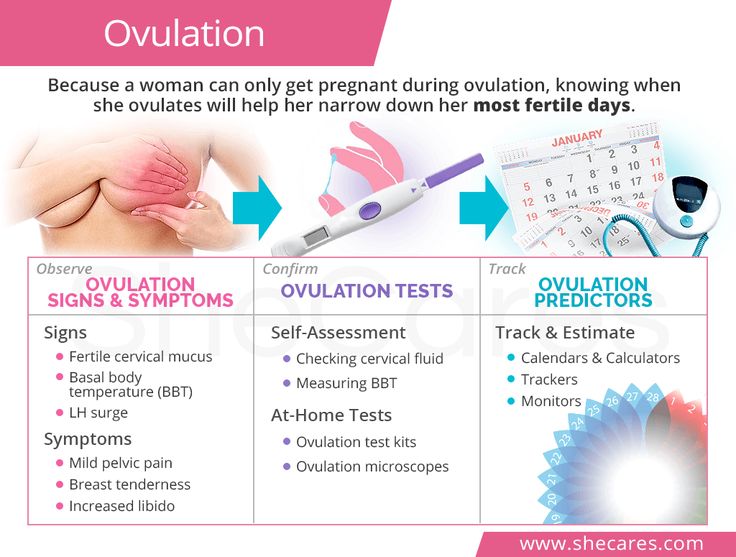
If the areola, the colored area around the nipple, gets darker or larger, this can suggest pregnancy. These changes can occur as early as 1 or 2 weeks after conception.
Women who suspect that they are pregnant should take a home pregnancy test. If the result is positive, make an appointment with a doctor to confirm the pregnancy and plan the next steps.
If the test is negative, but no period occurs within 1 or 2 weeks of when it was due, it is also a good idea to see a doctor.
The doctor can help determine the reason for a late or missed period and recommend treatment options. They can also address concerns about any unusual symptoms.
PMS Symptoms vs. Pregnancy Symptoms: 7 Comparisons
PMS Symptoms vs. Pregnancy Symptoms: 7 Comparisons- Health Conditions
- Featured
- Breast Cancer
- IBD
- Migraine
- Multiple Sclerosis (MS)
- Rheumatoid Arthritis
- Type 2 Diabetes
- Articles
- Acid Reflux
- ADHD
- Allergies
- Alzheimer's & Dementia
- Bipolar Disorder
- Cancer
- Crohn's Disease
- Chronic Pain
- Cold & Flu
- COPD
- Depression
- Fibromyalgia
- Heart Disease
- High Cholesterol
- HIV
- Hypertension
- IPF
- Osteoarthritis
- Psoriasis
- Skin Disorders and Care
- STDs
- Featured
- Discover
- Wellness Topics
- Nutrition
- Fitness
- Skin Care
- Sexual Health
- Women's Health
- Mental Well-Being
- Sleep
- Product Reviews
- Vitamins & Supplements
- Sleep
- Mental Health
- Nutrition
- At-Home Testing
- CBD
- Men’s Health
- Original Series
- Fresh Food Fast
- Diagnosis Diaries
- You’re Not Alone
- Present Tense
- Video Series
- Youth in Focus
- Healthy Harvest
- No More Silence
- Future of Health
- Wellness Topics
- Plan
- Health Challenges
- Mindful Eating
- Sugar Savvy
- Move Your Body
- Gut Health
- Mood Foods
- Align Your Spine
- Find Care
- Primary Care
- Mental Health
- OB-GYN
- Dermatologists
- Neurologists
- Cardiologists
- Orthopedists
- Lifestyle Quizzes
- Weight Management
- Am I Depressed? A Quiz for Teens
- Are You a Workaholic?
- How Well Do You Sleep?
- Tools & Resources
- Health News
- Find a Diet
- Find Healthy Snacks
- Drugs A-Z
- Health A-Z
- Health Challenges
- Connect
- Breast Cancer
- Inflammatory Bowel Disease
- Psoriatic Arthritis
- Migraine
- Multiple Sclerosis
- Psoriasis
Medically reviewed by Debra Rose Wilson, Ph.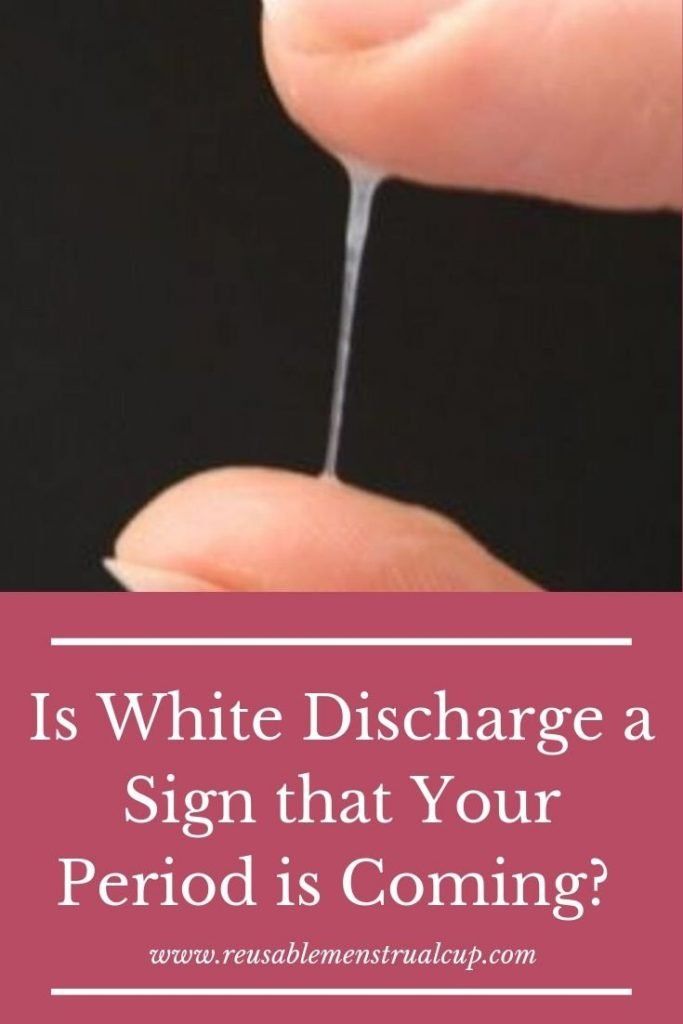 D., MSN, R.N., IBCLC, AHN-BC, CHT — By Stacey Feintuch on January 16, 2018
D., MSN, R.N., IBCLC, AHN-BC, CHT — By Stacey Feintuch on January 16, 2018
Though symptoms of premenstrual syndrome (PMS) and pregnancy are often similar, there are several key differences and certain symptoms that are unique to each.
Overview
Premenstrual syndrome (PMS) is a group of symptoms linked to the menstrual cycle. Typically, PMS symptoms happen one to two weeks before your period. They usually stop after your period starts.
The symptoms of PMS can be very similar to those of early pregnancy. Read on to learn how to tell the difference. But remember, these differences are subtle and vary from woman to woman.
1. Breast pain
PMS: During PMS, breast swelling and tenderness can occur during the second half of your menstrual cycle. Tenderness ranges from mild to severe, and is usually the most severe right before your period. Women in their childbearing years tend to have more severe symptoms.
Breast tissue may feel bumpy and dense, especially in the outer areas.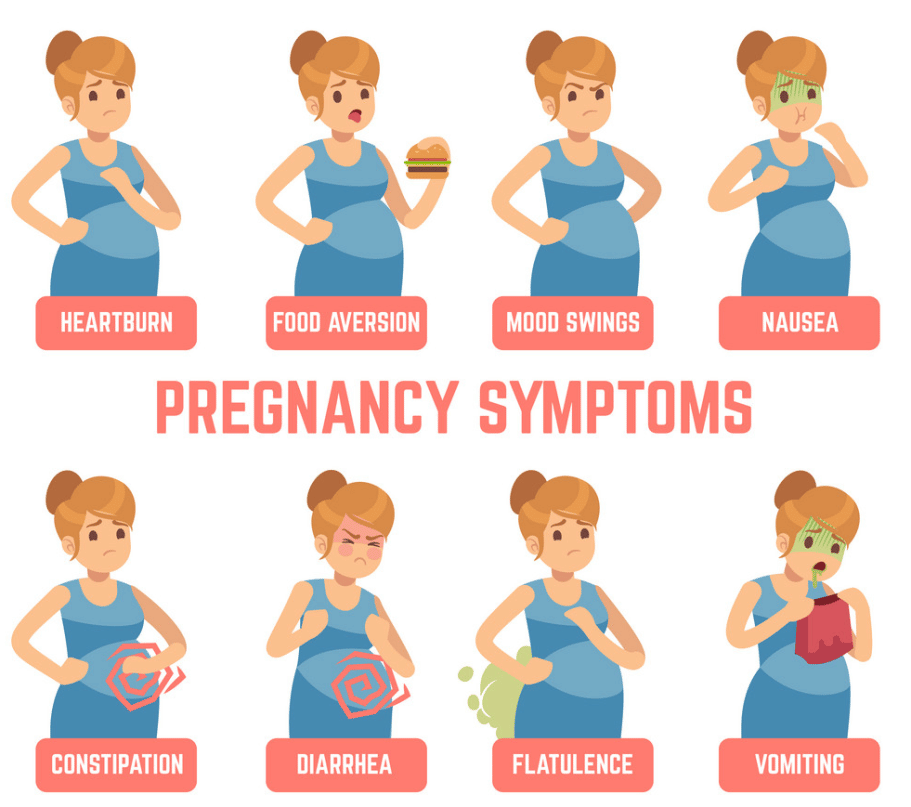 You may have a feeling of breast fullness with tenderness and a heavy, dull pain. The pain often improves during your period or right after, as your progesterone levels decrease.
You may have a feeling of breast fullness with tenderness and a heavy, dull pain. The pain often improves during your period or right after, as your progesterone levels decrease.
Pregnancy: Your breasts during early pregnancy may feel sore, sensitive, or tender to the touch. They may also feel fuller and heavier. This tenderness and swelling will usually happen one to two weeks after you conceive, and it can last for a while as your progesterone levels rise due to your pregnancy.
2. Bleeding
PMS: You generally won’t have bleeding or spotting if it’s PMS. When you have your period, the flow is noticeably heavier and can last up to a week.
Pregnancy: For some, one of the first signs of pregnancy is light vaginal bleeding or spotting that’s usually pink or dark brown. This typically happens 10 to 14 days after conception and is usually not enough to fill pads or tampons. The spotting typically lasts for just a day or two, so it’s shorter than a normal period.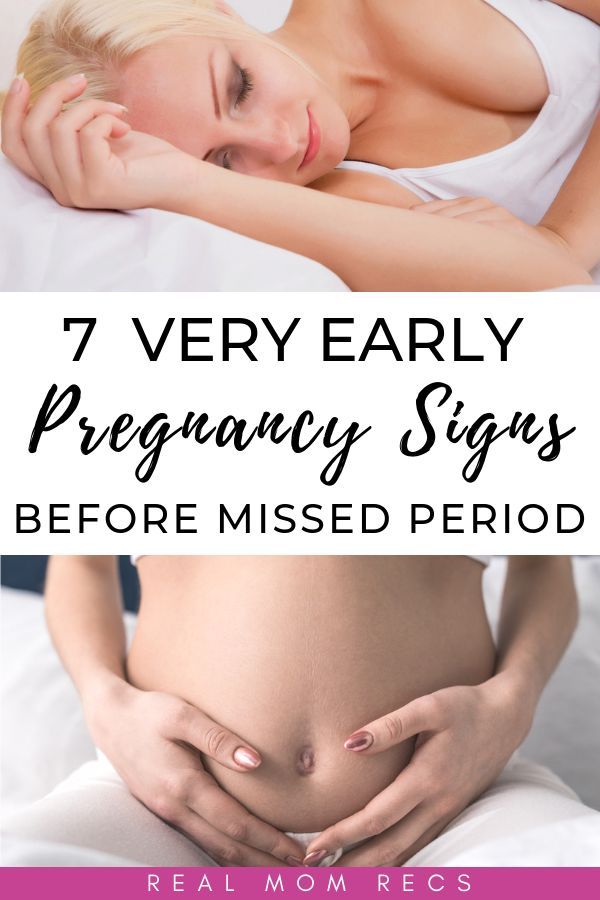
3. Mood changes
PMS: You may be irritable and feel a bit grouchy during PMS. You may also have crying spells and feel anxious. These symptoms typically go away after your period starts.
Getting some exercise and plenty of sleep may help take the edge off of your PMS moodiness. However, if you feel sad, overwhelmed, hopeless, or lack energy for two weeks or more, you could be depressed. Be sure to talk to your doctor.
Pregnancy: If you’re pregnant, you can have mood changes that last until you give birth. You’re more likely to be emotional during pregnancy. You may be ecstatic and excited, looking forward to the new member of your family. You may also have moments of sadness and cry more easily.
As with PMS, these latter symptoms can also indicate depression. If you’re concerned about your symptoms and think you might be depressed, be sure to talk to your doctor. Depression during pregnancy is common, and it can — and should — be treated.
4. Fatigue
PMS: Tiredness or fatigue is common during PMS, as is trouble sleeping. These symptoms should go away when your period starts. Getting some exercise can help improve your sleep and lessen your fatigue.
Pregnancy: While you’re pregnant, increased levels of the hormone progesterone can make you tired. Fatigue can be more pronounced during your first trimester, but it can last throughout your pregnancy as well. To help your body cope, be sure to eat well and get lots of sleep.
5. Nausea
PMS: You shouldn’t expect nausea or vomiting if your period is late but some digestive discomfort such as nausea can accompany symptoms of PMS.
Pregnancy: Morning sickness is one of the most classic and clear signs you’re pregnant. Bouts of nausea often begin a month after you get pregnant. Vomiting may or may not accompany the nausea. Despite the name, morning sickness can occur at any time of the day.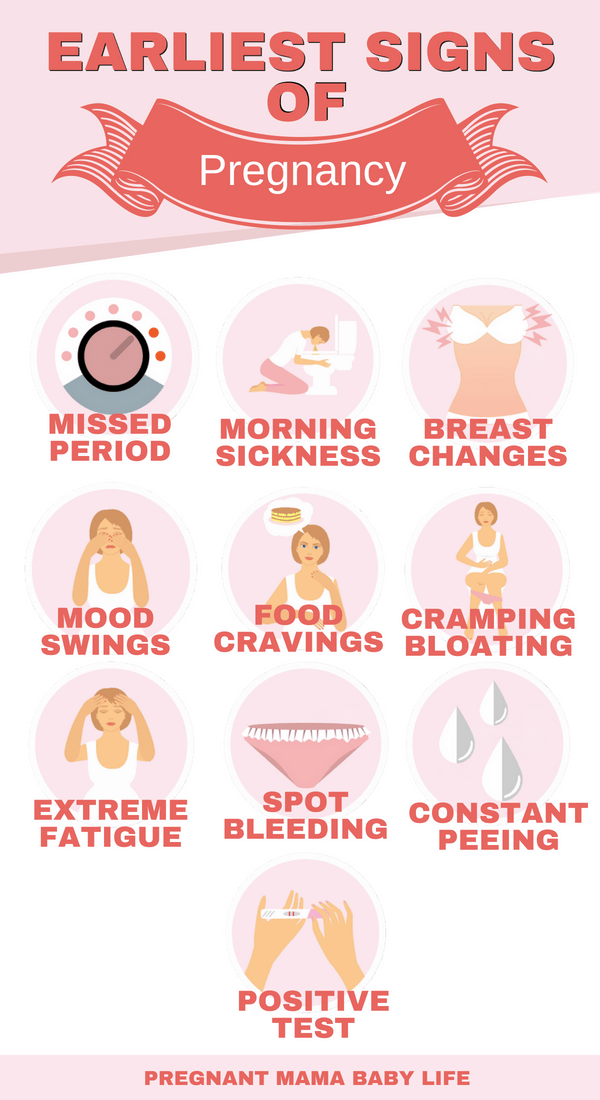 However, not all women experience morning sickness.
However, not all women experience morning sickness.
6. Food cravings and aversions
PMS: When you have PMS, you’ll likely notice that your eating habits change. You may crave chocolate, carbohydrates, sugars, sweets, or salty foods. Or you may have a ravenous appetite. These cravings don’t happen to the same extent when you’re pregnant.
Pregnancy: You may have highly specific cravings, and you may be totally uninterested in other foods. You may also have an aversion to certain smells and tastes, even ones you once liked. These effects can last throughout pregnancy.
You could also have pica, in which you compulsively eat items that have no nutritional value, such as ice, dirt, dried paint flakes, or pieces of metal. If you have cravings for nonfood items, talk to your doctor right away.
7. Cramping
PMS: If you have PMS, you may experience dysmenorrhea, which are cramps that happen 24 to 48 hours before your period.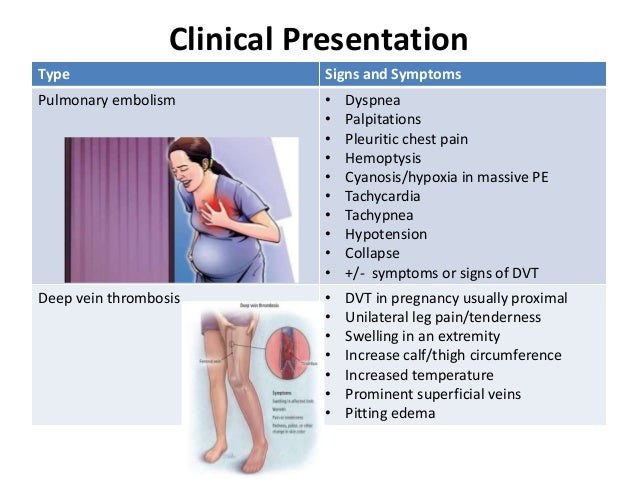 The pain will probably decrease during your period and eventually go away by the end of your flow.
The pain will probably decrease during your period and eventually go away by the end of your flow.
Menstrual cramps will often decrease after your first pregnancy or as you age. Some women will experience more cramping as they start to go into menopause.
Pregnancy: Early in pregnancy, you may experience mild or light cramping. These cramps will probably feel like the light cramps you get during your period, but they’ll be in your lower stomach or lower back.
If you have a history of pregnancy loss, don’t ignore these symptoms. Rest. If they don’t subside, talk to your doctor. You can have the cramps for weeks up to months when you’re pregnant. If you know you’re pregnant and these cramps are accompanied by any bleeding or watery discharge, see a doctor immediately.
Takeaway
It’s important to know the cause of your symptoms. If you’re pregnant, the sooner you find out, the sooner you can get the right care. The best way to tell the difference between symptoms of PMS and early pregnancy is to take a pregnancy test.
It can also be helpful to track your symptoms so you notice when there’s a change in your typical pattern. If you have questions or concerns about any of your symptoms, be sure to see your doctor.
Read this article in Spanish.
Last medically reviewed on January 16, 2018
- Parenthood
- Pregnancy
- Getting Pregnant
How we reviewed this article:
Healthline has strict sourcing guidelines and relies on peer-reviewed studies, academic research institutions, and medical associations. We avoid using tertiary references. You can learn more about how we ensure our content is accurate and current by reading our editorial policy.
- Cheng C-Y, et al. (2014). Survey of trend and factors in perinatal maternal fatigue.
onlinelibrary.wiley.com/doi/10.1111/nhs.12149/full - Depression during and after pregnancy. (2017).
womenshealth.gov/publications/our-publications/fact-sheet/depression-pregnancy.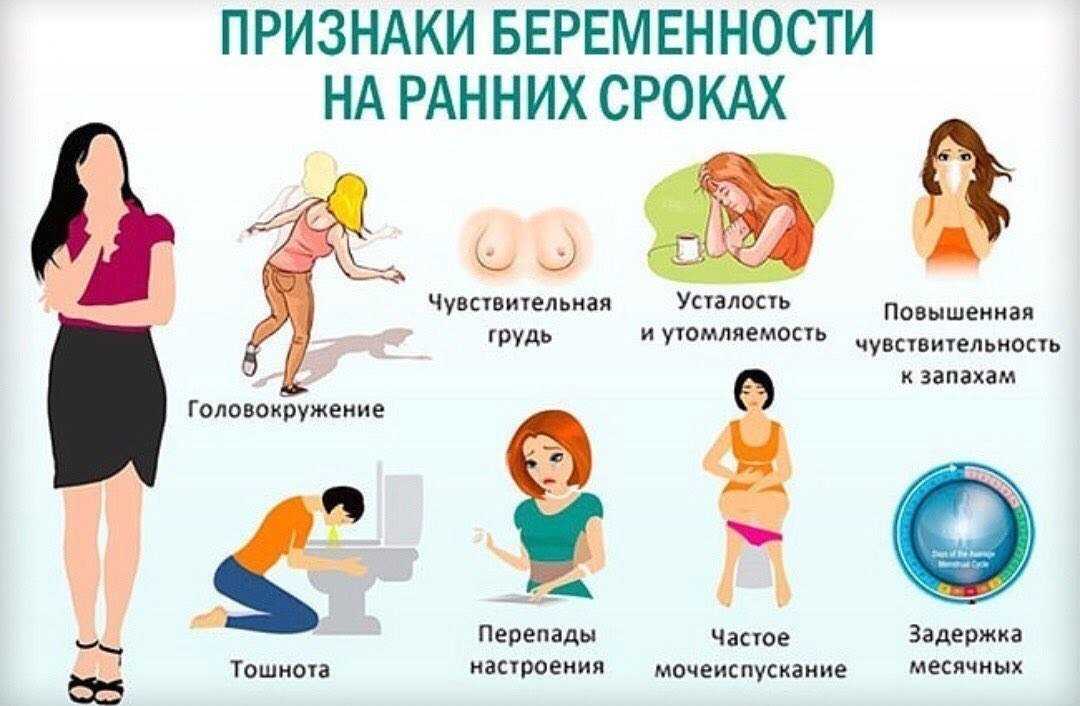 html
html - Dysmenorrhea: Painful periods. (2015).
acog.org/-/media/For-Patients/faq046.pdf?dmc=1&ts=20150629T2112053037 - Mayo Clinic Staff. (2017). Pregnancy week by week.
mayoclinic.org/healthy-lifestyle/pregnancy-week-by-week/in-depth/pregnancy/art-20047208 - Mayo Clinic Staff. (2017). Symptoms of pregnancy: What happens first.
mayoclinic.org/healthy-lifestyle/getting-pregnant/in-depth/symptoms-of-pregnancy/art-20043853 - Morning sickness: Nausea and vomiting of pregnancy. (2015).
acog.org/Patients/FAQs/Morning-Sickness-Nausea-and-Vomiting-of-Pregnancy - Premenstrual syndrome. (2010).
womenshealth.gov/files/documents/fact-sheet-premenstrual-syndrome.pdf
Our experts continually monitor the health and wellness space, and we update our articles when new information becomes available.
Current Version
Jan 16, 2018
Written By
Stacey Feintuch
Edited By
Stassi Myer - CE
Medically Reviewed By
Debra Rose Wilson, PhD, MSN, RN, IBCLC, AHN-BC, CHT
Share this article
Medically reviewed by Debra Rose Wilson, Ph. D., MSN, R.N., IBCLC, AHN-BC, CHT — By Stacey Feintuch on January 16, 2018
D., MSN, R.N., IBCLC, AHN-BC, CHT — By Stacey Feintuch on January 16, 2018
related stories
Cramps but No Period: 7 Early Pregnancy Symptoms
8 DPO: The Early Pregnancy Symptoms
5 Days Past Ovulation: The Early Pregnancy Symptoms
Early Pregnancy Symptoms
Why You May Have Pregnancy Symptoms When the Test Is Negative
Read this next
Cramps but No Period: 7 Early Pregnancy Symptoms
Medically reviewed by Kimberly Dishman, MSN, WHNP-BC, RNC-OB
If you're experiencing cramping but don't get your period, you might be pregnant. Here are seven common early pregnancy symptoms.
READ MORE
8 DPO: The Early Pregnancy Symptoms
Medically reviewed by Kimberly Dishman, MSN, WHNP-BC, RNC-OB
If you miss your period, you might wonder if you’re pregnant.
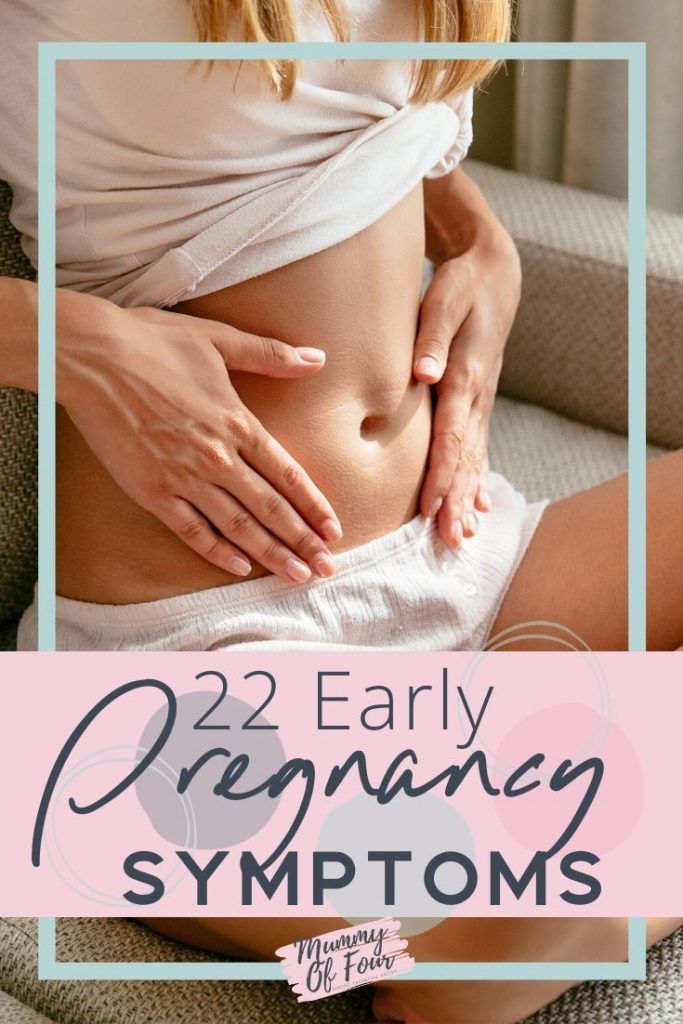 Some women have symptoms of pregnancy as early as eight days past ovulation (8 DPO). We…
Some women have symptoms of pregnancy as early as eight days past ovulation (8 DPO). We…READ MORE
5 Days Past Ovulation: The Early Pregnancy Symptoms
Medically reviewed by Deborah Weatherspoon, Ph.D., MSN
How early can you take a pregnancy test? Learn the earliest signs of pregnancy, plus the best time to take a pregnancy test for the most accurate…
READ MORE
Early Pregnancy Symptoms
Medically reviewed by Valinda Riggins Nwadike, MD, MPH
What are the telltale early symptoms of pregnancy? Every person is different, but here are a few top signs.
READ MORE
Why You May Have Pregnancy Symptoms When the Test Is Negative
Medically reviewed by Carolyn Kay, M.D.
If you're staring at a negative pregnancy test but feel pregnant, there are many possible explanations.
 Here are 10 of them.
Here are 10 of them.READ MORE
Cramps but No Period: 7 Early Pregnancy Symptoms
Medically reviewed by Kimberly Dishman, MSN, WHNP-BC, RNC-OB
If you're experiencing cramping but don't get your period, you might be pregnant. Here are seven common early pregnancy symptoms.
READ MORE
6 Weeks Pregnant: Symptoms, Tips, and More
Medically reviewed by Tracy Stickler
Although you won’t look pregnant yet, your body is going through many changes by week 6. Symptoms include nausea, constipation, and more.
READ MORE
When You Should Take a Pregnancy Test
Medically reviewed by Nancy Carteron, M.D., FACR
Trying to figure out if you need to take a pregnancy test? These five important signs will help you decide.
READ MORE
Rheumatoid Arthritis and Pregnancy: What You Need to Know
Medically reviewed by Nancy Carteron, M.
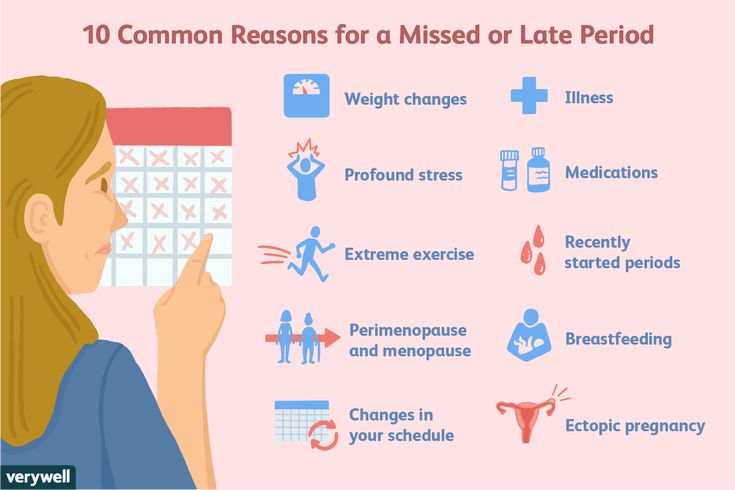 D., FACR
D., FACRLearn about potential problems associated with rheumatoid arthritis and pregnancy, including triggers, preeclampsia, premature birth, and low birth…
READ MORE
Can You Get Your Period and Still Be Pregnant?
Medically reviewed by Debra Rose Wilson, Ph.D., MSN, R.N., IBCLC, AHN-BC, CHT
Many women claim to still get their period during early pregnancy, but is this possible? Here’s the truth.
READ MORE
first signs of pregnancy in the first days
11/28/2019Updated 09/30/2021
A pregnancy test or ultrasound examination is not the only way to determine pregnancy. There are early signs of pregnancy that you should also pay attention to.
But, first of all, it is important to remember the differences between fetal and obstetric periods. The latter, for example, is counted from the first day of a woman's last menstruation due to a simpler calculation, because it is rather difficult to determine the exact date of conception, like ovulation.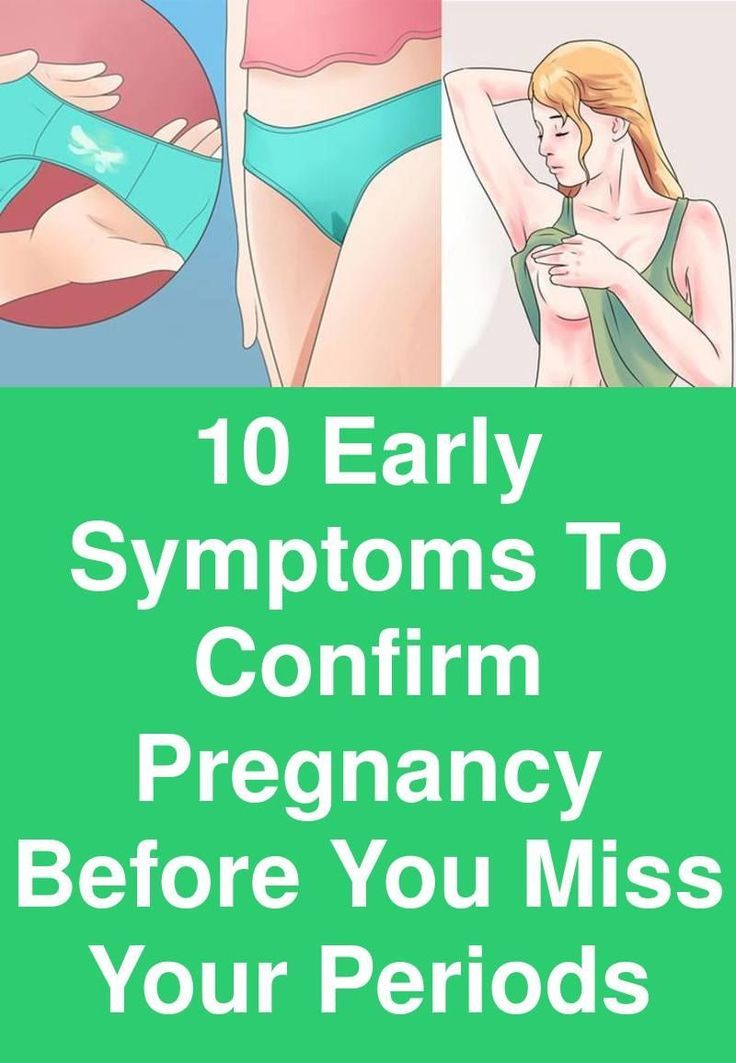
At the same time, embryonic pregnancy is the most accurate in terms of symptoms, which means that it is worth paying attention to the first signs of pregnancy before the delay. Despite the fact that a woman often confuses the symptoms of pregnancy with signs of upcoming periods, especially if conception was not planned.
If you need a timely and accurate pregnancy diagnosis from a qualified gynecologist, contact our private clinic R + Medical Network. We have the best specialists who are always ready to provide a full range of medical services.
When the first signs of pregnancy appear
The first signs of pregnancy are not identical for everyone. This is primarily due to the sensitivity of the woman's body to hCG, a hormone produced by the embryo at the beginning of the second week of development.
Therefore, in very rare cases, there is a complete absence of the first symptoms for several weeks.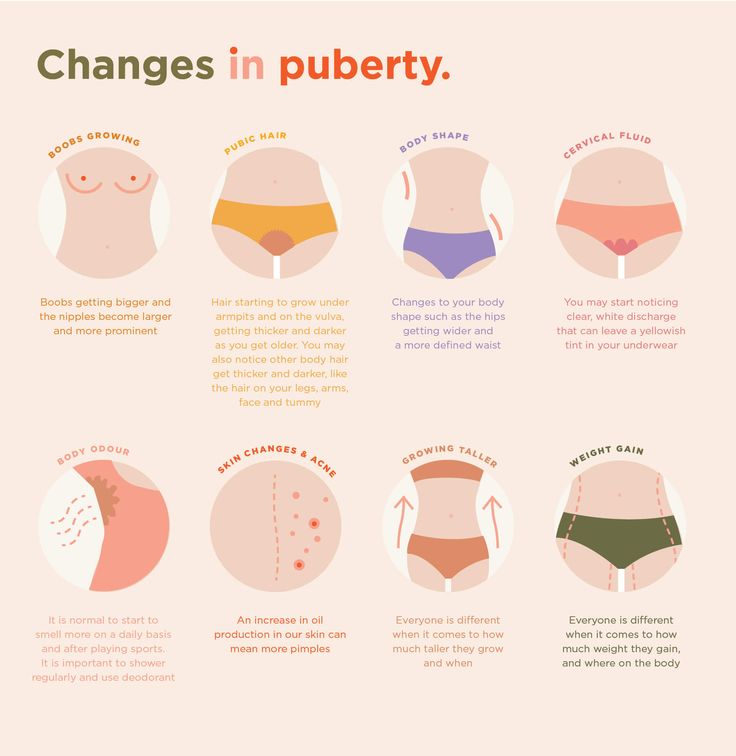
However, these are not all reasons. The menstrual cycle is also not all with the same duration. Because of what, women may not feel the characteristic “bells” of the corresponding position at all.
But still, in the overwhelming majority of cases, it is difficult not to notice when the first signs of pregnancy appear. Since, in addition to the presence of morning sickness, a metallic taste in the mouth, bloating, dizziness, there are a few of the earliest symptoms of pregnancy that you should pay attention to. However, these are not all the reasons. The menstrual cycle is also not all with the same duration. Because of what, women may not feel the characteristic “bells” of the corresponding position at all.
5 first symptoms of pregnancy
- Drawing pain in the lower abdomen;
- Atypical fatigue and drowsiness;
- Breast tenderness;
- Changes in skin condition;
- Frequent urination.
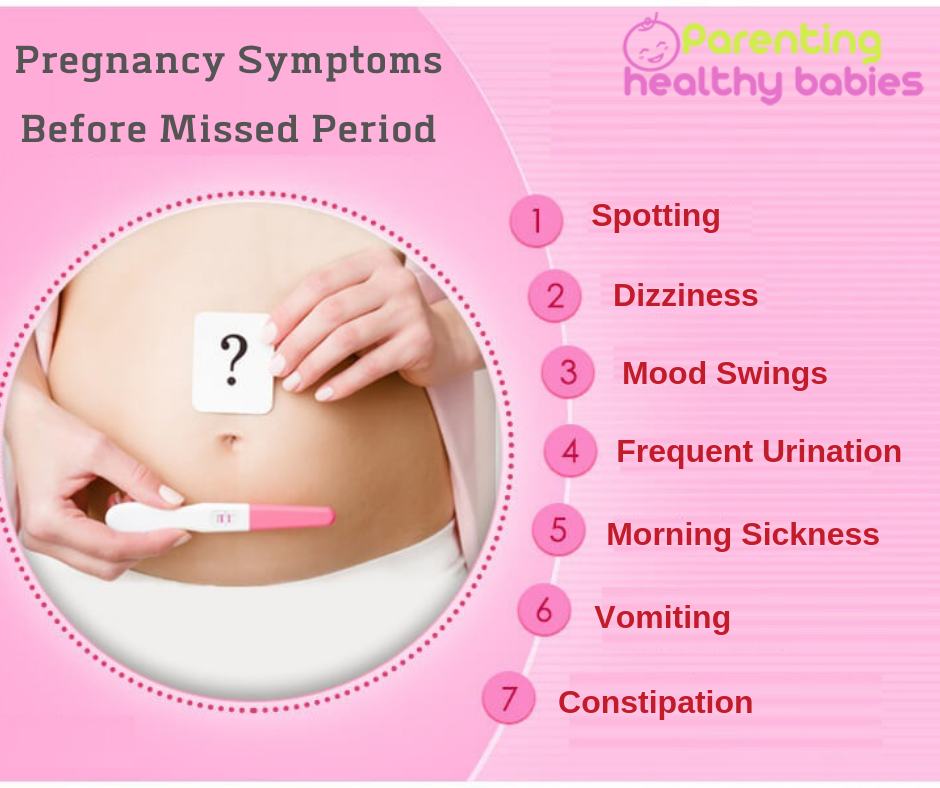
These symptoms can also include mood swings, changes in taste preferences, discomfort in the lower back (as with menstruation), and sometimes even spotting spotting.
It is almost impossible to check pregnancy at the 1st week. The ultrasound machine will definitely not record any changes, and it is more rational to carry out a pregnancy test at least 10-14 days after the alleged conception.
That is why the very first signs of pregnancy can be recognized by you.
Can there be pregnancy during menstruation?
According to the leading and competent gynecologists of the private clinic R + Medical Network, early discharge is possible and almost always, not knowing about pregnancy, women confuse it with the onset of menstruation itself.
However, this kind of discharge stops a little earlier than menstruation, and this happens due to the fact that a fertilized egg, attaching to the wall of the uterus, can cause small blood discharge.
Therefore, to the question of whether there can be pregnancy during menstruation - definitely not. If it was menstruation that went, this means that the egg that comes out of the ovaries every month was not fertilized. But those discharges that a woman perceives as “monthly” are not at all like that.
At the same time, the delay is also not the main guideline in pregnancy. Firstly, not all women can determine the delay on time, since many of the menstrual cycles are unstable. Therefore, the question of whether there can be a pregnancy during menstruation is definitely not. If it was menstruation that went, this means that the egg that comes out of the ovaries every month was not fertilized. But those discharges that a woman perceives as “monthly” are not at all like that.
Secondly, the delay in menstruation may not be related to pregnancy at all, but the reason lies in hormonal failure, stress and other health problems. And first of all, gynecological.
Therefore, if you start taking care of your health, listen to yourself and visit a gynecologist on time, you will not be able to miss either the first symptoms of pregnancy, or pathologies associated with reproductive function and hormonal levels.
What to do if you find the first signs of pregnancy
If you find 100% signs of pregnancy in the first weeks after the intended conception, you should contact a gynecologist.
If your pregnancy status is confirmed, the first thing to do is stop worrying, whether it's a planned pregnancy or not.
And secondly, you should immediately give up bad habits (if you have them), smoking, drinking alcohol, etc.
Next, you need to adjust your diet and follow the doctor's recommendations.
During pregnancy, regardless of the period, it is necessary to completely abandon hot baths, taking medications (in consultation with the doctor), excessive physical exertion, weight lifting, etc.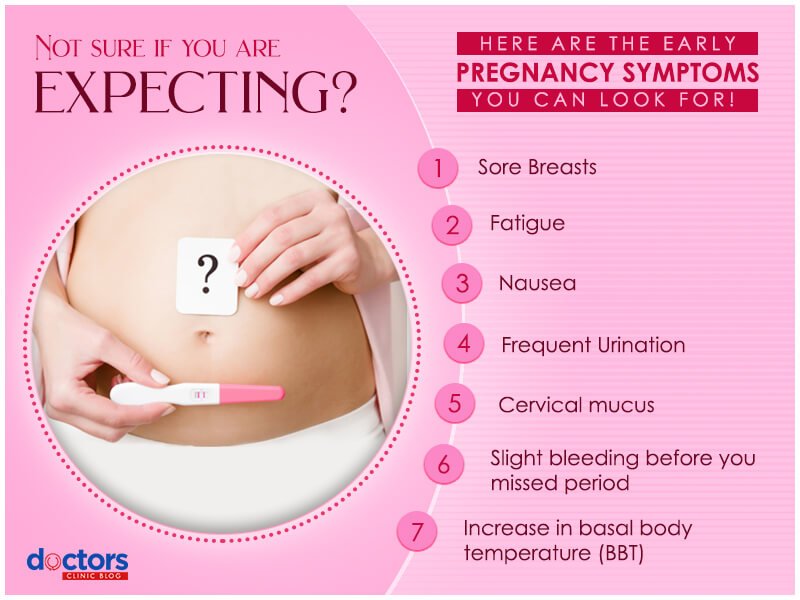
But, and besides the fact that you need to change your lifestyle (nutrition, frequent walks in the fresh air, strengthen the immune system), your meetings with the gynecologist should also become more frequent throughout the entire period of pregnancy. And how often - the gynecologist will decide based on your general condition and well-being.
Scheduled appointments: Ultrasound, tests, control, are also within the competence of the gynecologist leading your pregnancy.
The first ultrasound can be performed at 8-14 weeks, it all depends on the individual characteristics of the particular case.
In general, during the entire gestation period, three planned ultrasound scans are expected:
- From 8 to 14 weeks.
- From 20 to 24 weeks.
- From 32 to 34 weeks.
On an individual basis, of course, additional unscheduled ultrasound examinations can also be carried out.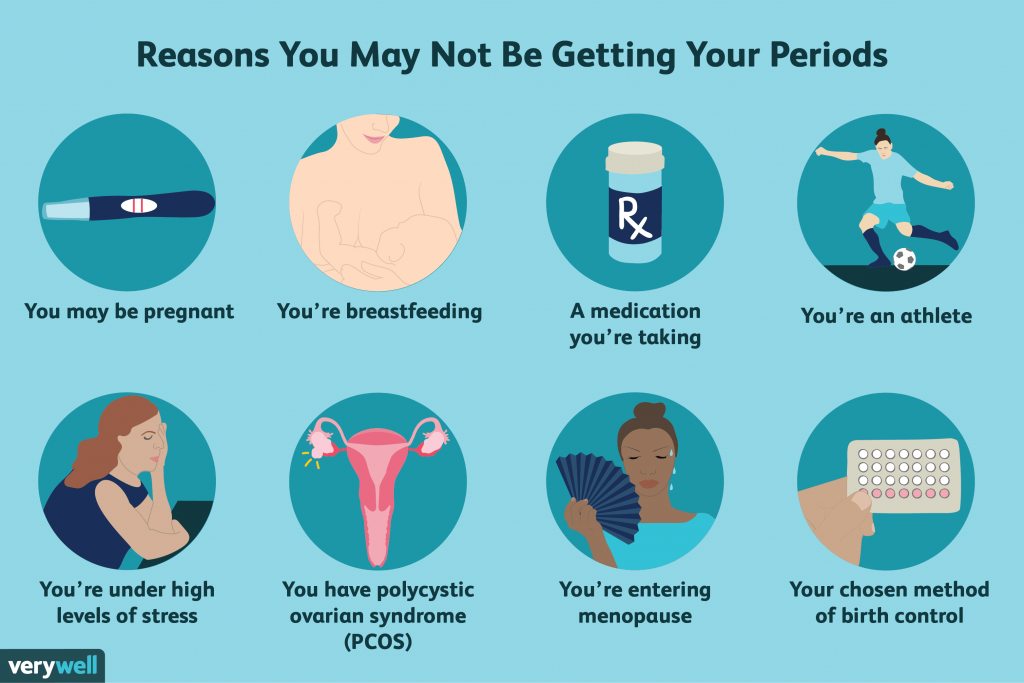 This should not frighten a woman, as it is necessary to make timely decisions in order to avoid various complications.
This should not frighten a woman, as it is necessary to make timely decisions in order to avoid various complications.
If, during a confirmed pregnancy, a woman has an incomprehensible discharge, especially bloody, this is a reason to contact a gynecologist urgently to prevent possible risks.
Every woman should have her own gynecologist, whom she could trust at any time of the day or night.
Therefore, we are waiting for you in the private multidisciplinary clinic R + Medical Network, where the best gynecologists of Ukraine work and the entire modern range of diagnostic and therapeutic procedures, including innovative methods of treatment and technologies, is collected.
All this allows us to carry out conservative, surgical treatment, minimally invasive manipulations, pregnancy management - at the highest professional level.
With warmth, care and attention.
Author:
Solomenko Olga Nikolaevna
Obstetrician-gynecologist, the highest category, Experience 14 years
Other blog entries
Menstruation during pregnancy - maternity hospital "Leleka"
Young women often wonder if pregnancy and menstruation can happen at the same time. Indeed, during pregnancy, some women experience spotting, which is mistaken for menstruation. But it's not.
Indeed, during pregnancy, some women experience spotting, which is mistaken for menstruation. But it's not.
Full menstruation during pregnancy is impossible. The endometrium, the layer of cells that lines the inside of the uterus and is shed during menstruation, helps the placenta develop during pregnancy and stays in the body. The cycle of monthly renewal of the endometrium during pregnancy stops.
However, spotting during pregnancy is not uncommon. Their appearance indicates that there are some malfunctions or pathological conditions in the woman's body. It can be a hormonal imbalance, a threatened miscarriage, and even an ectopic pregnancy.
Unfortunately, many young women underestimate this symptom, believing that periods during pregnancy are possible, and are not worried about discharge. They do not go to the doctor until the situation becomes critical. And in some cases, a timely reaction can save not only the unborn child, but also the life of the mother.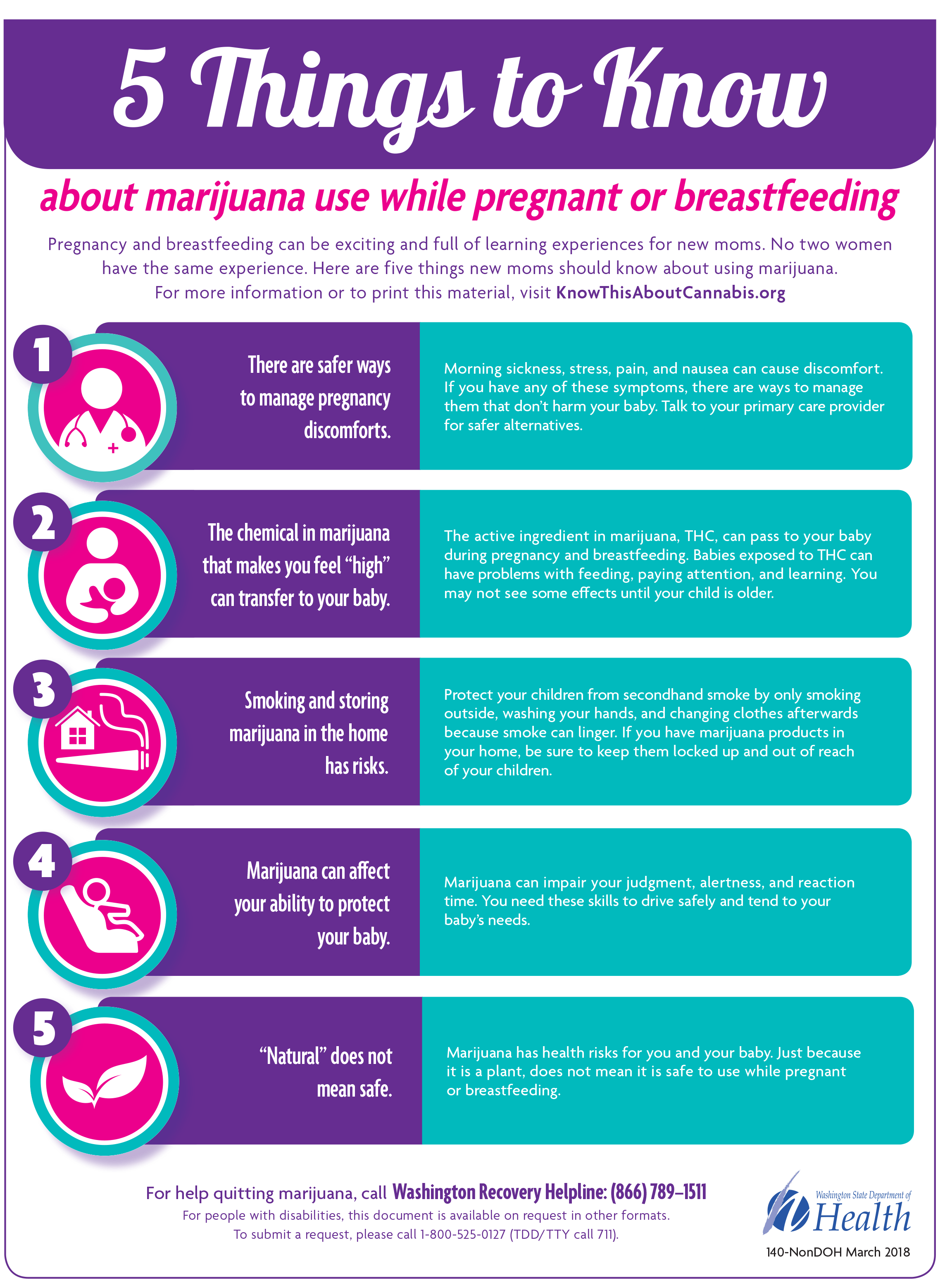
What causes bleeding during pregnancy
In order to understand how menstruation can start during pregnancy and what should be done, let's turn to the processes that occur in the body of a pregnant woman.
During intercourse, semen enters the vagina and then into the uterus. But fertilization may not occur immediately: spermatozoa remain active for three days. After the sex cells fuse, the fertilized egg attaches itself to the wall of the uterus. This, too, may not happen immediately, but within a few days. If these processes are delayed in time, the usual regular menstruation may begin. In this case, the egg will be fixed in the uterus, the pregnancy will develop normally. A pregnancy test will show a positive result. Alas, this rarely happens. More often, spotting is an alarming symptom.
Pregnancy and early periods
In some cases, the fertilized egg does not implant in the uterus, but in the fallopian tube or outside the genitals. An ectopic pregnancy develops - a severe pathology that poses a serious threat to the life of the mother and excludes a favorable outcome for the fetus. In an ectopic pregnancy, spotting may indicate a ruptured fallopian tube. The walls of the fallopian tubes are only 2-3 mm thick, they are inelastic. If an embryo develops and grows in the tube, the wall breaks, internal bleeding begins. This usually happens within 3-4 weeks. In this situation, urgent surgical intervention is necessary.
An ectopic pregnancy develops - a severe pathology that poses a serious threat to the life of the mother and excludes a favorable outcome for the fetus. In an ectopic pregnancy, spotting may indicate a ruptured fallopian tube. The walls of the fallopian tubes are only 2-3 mm thick, they are inelastic. If an embryo develops and grows in the tube, the wall breaks, internal bleeding begins. This usually happens within 3-4 weeks. In this situation, urgent surgical intervention is necessary.
With detachment of the epithelium and the threat of miscarriage, characteristic discharge may also appear. This is possible with hormonal disruptions in the body of a woman. But sometimes spontaneous abortion occurs due to some internal failures that are almost impossible to predict in advance. If a young woman leads an unhealthy lifestyle - drinking alcohol, other toxic substances, or doing a lot of physical labor - this can increase the risk of spontaneous abortion. Allocations will just mean that the process of rejection of the embryo has begun.